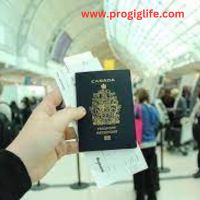Dreaming of a life in the picturesque landscapes of Canada? Wondering how to legally migrate to Canada? You’re not alone! Canada’s welcoming atmosphere, strong economy, and high-quality healthcare and education systems make it a top destination for immigrants worldwide. This guide will walk you through the process, requirements, and essential information to make your Canadian dream a reality.
Understanding Canadian Immigration Categories
- Express Entry System
The Express Entry system is a streamlined immigration process that includes three main categories: Federal Skilled Worker Program, Canadian Experience Class, and Federal Skilled Trades Program. Each category has its own eligibility criteria, and candidates are assessed based on factors such as age, education, work experience, and language proficiency.
- Provincial Nominee Program (PNP)
Provincial Nominee Programs allow Canadian provinces and territories to nominate individuals for permanent residence based on their specific labor market needs. To qualify, you must meet the province’s criteria and receive a nomination.
- Family Sponsorship
If you have a family member who is a Canadian citizen or permanent resident, they may sponsor you for immigration. This option is available for spouses, common-law partners, dependent children, parents, and grandparents.
- Study Permits and Work Permits
Many individuals begin their Canadian journey by obtaining a study or work permit. Studying or working in Canada can be a pathway to permanent residency.
Eligibility Criteria
- Age Requirements
The Express Entry system favors younger candidates, as they can earn more points in the Comprehensive Ranking System (CRS). However, there is no specific age limit.
- Education and Language Proficiency
Having a higher level of education and strong language skills in English or French significantly improves your chances. You may need to take language tests like IELTS or CELPIP.
- Work Experience
Relevant work experience is crucial. Depending on the category, you may need at least one year of Canadian work experience.
- Proof of Funds
To ensure your financial stability, you must demonstrate that you have enough funds to support yourself and your family.
The Application Process
- Create an Express Entry Profile
If you are applying through the Express Entry system, you must create an online profile and enter your information, including your skills, work experience, education, and language proficiency.
- Submit an Expression of Interest (EOI)
Provincial Nominee Programs often require candidates to submit an EOI to express their interest in a particular province or territory.
- Invitation to Apply (ITA)
If you are eligible and competitive, you will receive an ITA to apply for permanent residency. You have 60 days to submit your application.
- Medical and Security Checks
All applicants must undergo medical examinations and security checks to ensure admissibility to Canada.
- Biometrics and Interviews
Depending on your situation, you may need to provide biometrics (fingerprints and photographs) or attend an interview.
FAQs
Q: Can I apply for Canadian immigration without a job offer?
A: Yes, you can apply through the Express Entry system without a job offer. However, having a job offer can earn you additional points.
Q: How long does the Canadian immigration process take?
A: The processing time varies depending on the category and the number of applications in the system. On average, it can take six to eight months.
Q: Is there an age limit for family sponsorship?
A: No, there is no age limit for family sponsorship. However, the sponsor must meet certain income requirements.
Q: Do I need to hire an immigration consultant?
A: While it’s not mandatory, hiring an immigration consultant can simplify the process and ensure that you meet all requirements.
Q: Can I bring my spouse and children with me?
A: Yes, you can include your spouse or common-law partner and dependent children in your application.
Q: What happens after I become a permanent resident?
A: As a permanent resident, you have the right to live, work, or study anywhere in Canada. After a few years, you may be eligible to apply for Canadian citizenship.
Conclusion
Navigating the Canadian immigration process may seem daunting, but with determination and the right guidance, you can achieve your goal of legally migrating to Canada. Remember to stay updated on the latest immigration policies, consult official government websites, and consider seeking professional advice if needed.
Whether you aspire to start a new life, further your career, or reunite with loved ones, Canada offers a warm welcome to those who follow the legal immigration path. So, take the first step, and soon you might find yourself calling Canada your home.
Admin
Information Hub





